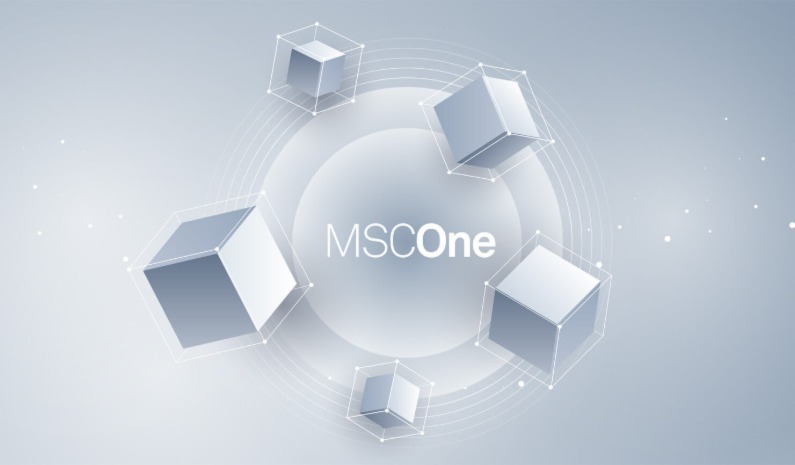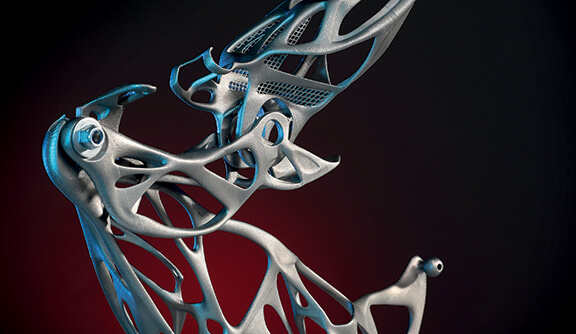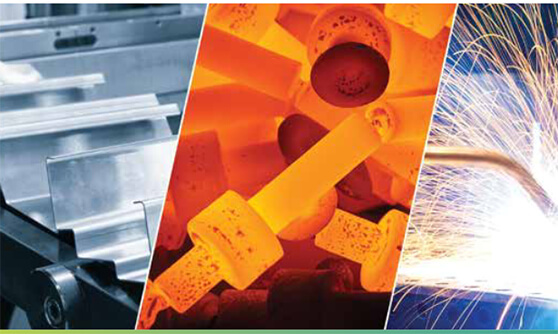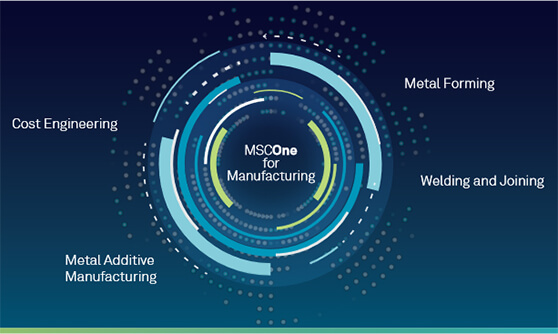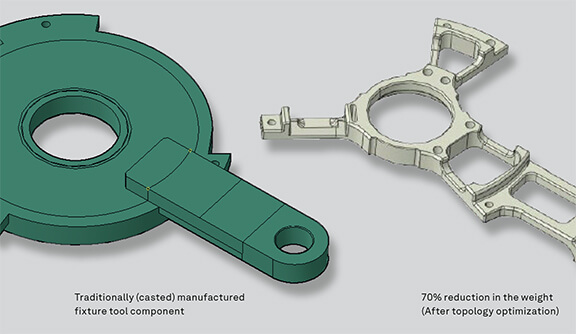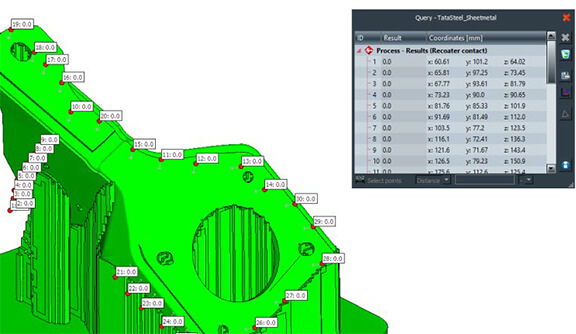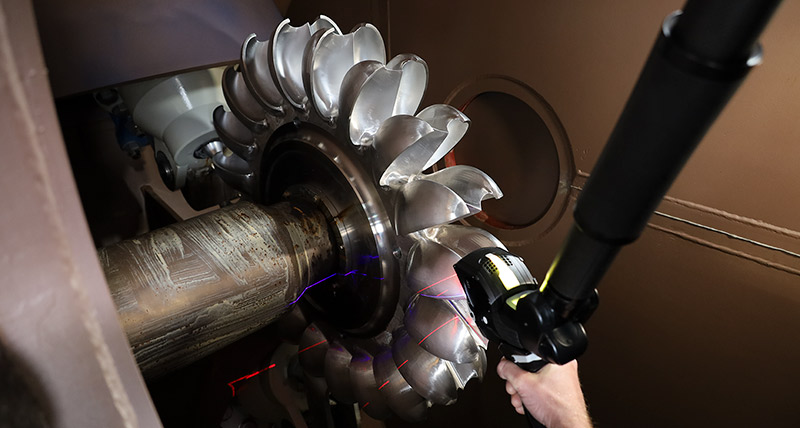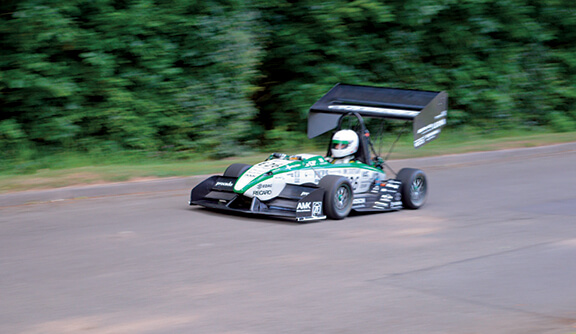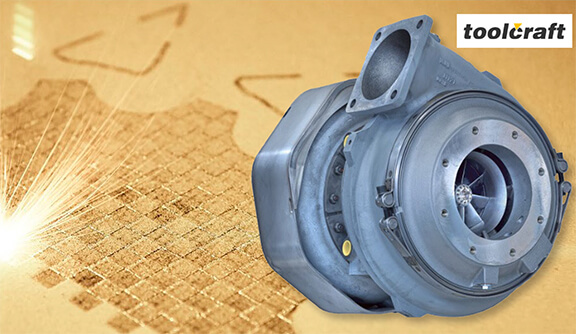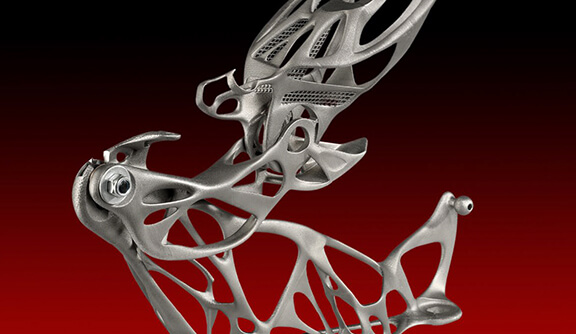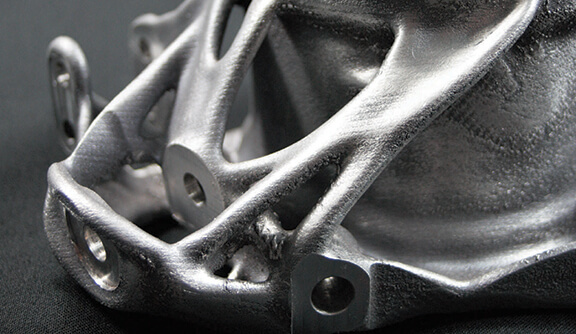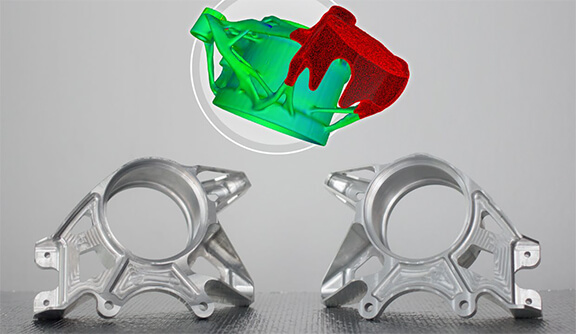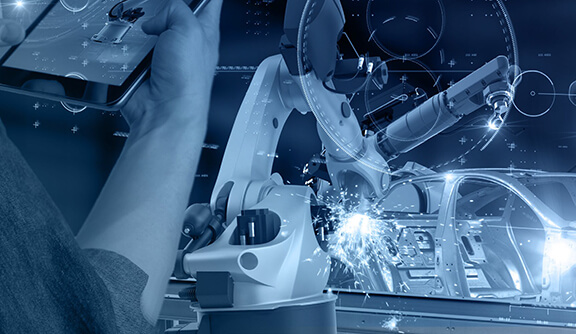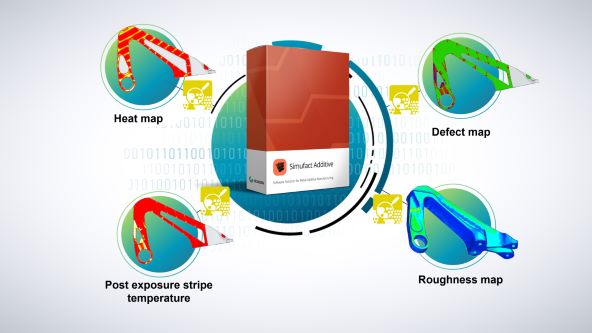Simufact Additive: PBF process and defect analysis
A novel multi-scale process simulation approach for location-specific defects predictions within full-scale geometries

Predict thermal history and defect formation for metal AM
Simufact introduces a revolutionary module that takes Metal Laser Powder Bed Fusion (L-PBF) process simulation to the next level. Predict defects, optimize processes, and empower engineers with unprecedented accuracy.
Ready to get started?
Discover the Simufact Additive Defect Prediction Solution

Simufact Additive is a scalable software solution for the simulation of metal-based additive manufacturing processes which focuses on laser powder bed fusion (L- PBF) and metal binder jetting (MBJ) processes.
The newly introduced "PBF process and defect analysis" (PDA) module introduces a novel multi-scale, hybrid analytical-numerical model-based process simulation approach that was developed by Pratt & Whitney (P&W), and the Raytheon Technologies Research Center (RTRC), and is being incorporated into Simufact Additive software by Hexagon Manufacturing Intelligence, Inc. (Hexagon). The model enables thermal history and defect prediction at the individual scan vector and powder layer level in minutes.
Exactly the right metal AM process you need
Predicting Defects in Full-Scale Geometries
This module incorporates a cutting-edge multi-scale, hybrid analytical-numerical model-based process simulation approach. Developed in collaboration with Pratt & Whitney (P&W) and the Raytheon Technologies Research Center (RTRC), this breakthrough technology is now an integral part of Simufact Additive software by Hexagon Manufacturing Intelligence, Inc. (Hexagon).
This advanced model empowers engineers with the ability to predict thermal history and defects at both the individual scan vector and powder layer levels within minutes. It goes beyond conventional simulations by accurately forecasting the risk of local defects, including keyholing, lack of fusion, balling up, and surface roughness.

Identify ideal process parameters
Single stripe maps and singe track maps allow users to identify the defect-free range of laser power and scan speed for the corresponding process settings and material defined for the machine.
The model is able to predict risk of local defects including keyholing, lack of fusion, balling up, and surface roughness.Further it can determine the process parameter window locally for any location within the part, based on the local geometry and temperature of the substrate before the laser is applied locally, which is calculated by a combined analytical-numerical approach on the part scale and also depends on material properties, operational conditions, and part geometry.

2D and 3D Results
Defect and post-exposure stripe temperature maps are layer based 2D results which display possible defects per layer during a PBF process.
The defect maps shows the defect and defect free regions in a part layer i.e. keyhole porosity, unmelt etc. while the post-exposure stripe temperature shows the stripe temperature after laser exposure per layer during build. It visually represents the stripes produced by the laser.
In addition to that, roughness map and temperature are surface results which represents the surface roughness and final temperature of the part in 3D at the end of the PBF process.

Identify local defects
Local temperature map
Risk Prediction
Very short solve time
Optimal process paramenters
Multi scale analysis
Identify local defects
Local temperature map
Risk Prediction
Very short solve time
Optimal process paramenters
Multi scale analysis
Identify local defects
Local temperature map
Risk Prediction
Risk Prediction
Very short solve time
Optimal process paramenters
Multi scale analysis
Identify local defects
Local temperature map
Risk Prediction
Very short solve time
Optimal process paramenters
Multi scale analysis
Identify local defects
Local temperature map
Risk Prediction
Learn more about Simufact Additive
Flyers & brochures
Brochure
Design & Engineering simulation solutions
Flyer
Simufact Additive
Brochure
Simufact Additive
Flyer
HxGN Virtual Manufacturing Suite
Flyer
MSCOne for Manufacturing
Brochure
Design & Engineering simulation solutions
Flyer
Simufact Additive
Brochure
Simufact Additive
Flyer
HxGN Virtual Manufacturing Suite
Flyer
MSCOne for Manufacturing
Brochure
Design & Engineering simulation solutions
Brochure
Design & Engineering simulation solutions
Flyer
Simufact Additive
Brochure
Simufact Additive
Flyer
HxGN Virtual Manufacturing Suite
Flyer
MSCOne for Manufacturing
Brochure
Design & Engineering simulation solutions
Flyer
Simufact Additive
Brochure
Simufact Additive
Flyer
HxGN Virtual Manufacturing Suite
Flyer
MSCOne for Manufacturing
Brochure
Design & Engineering simulation solutions
Case studies
General Manufacturing
Overcome additive manufacturing issues by process simulation
Aerospace
Collaborative Simultaneous Engineering Tool for Additive Manufacturing
General Manufacturing
Design validation for highly efficient Additive Manufacturing
Power and energy
Acting as one today to meet the energy challenges of tomorrow
Automotive
Hero MotoCorp optimised the weight of foot-rest
Automotive
GreenTeam & Renishaw complete AM process simulation solution
General Manufacturing
How simulation supports 3D prototyping
Automotive
LightHinge+
General Manufacturing
Overcome additive manufacturing issues by process simulation
Aerospace
Collaborative Simultaneous Engineering Tool for Additive Manufacturing
General Manufacturing
Design validation for highly efficient Additive Manufacturing
Power and energy
Acting as one today to meet the energy challenges of tomorrow
Automotive
Hero MotoCorp optimised the weight of foot-rest
Automotive
GreenTeam & Renishaw complete AM process simulation solution
General Manufacturing
How simulation supports 3D prototyping
Automotive
LightHinge+
General Manufacturing
Overcome additive manufacturing issues by process simulation
Aerospace
Collaborative Simultaneous Engineering Tool for Additive Manufacturing
General Manufacturing
Design validation for highly efficient Additive Manufacturing
Power and energy
Acting as one today to meet the energy challenges of tomorrow
Power and energy
Acting as one today to meet the energy challenges of tomorrow
Automotive
Hero MotoCorp optimised the weight of foot-rest
Automotive
GreenTeam & Renishaw complete AM process simulation solution
General Manufacturing
How simulation supports 3D prototyping
Automotive
LightHinge+
General Manufacturing
Overcome additive manufacturing issues by process simulation
Aerospace
Collaborative Simultaneous Engineering Tool for Additive Manufacturing
General Manufacturing
Design validation for highly efficient Additive Manufacturing
Power and energy
Acting as one today to meet the energy challenges of tomorrow
Automotive
Hero MotoCorp optimised the weight of foot-rest
Automotive
GreenTeam & Renishaw complete AM process simulation solution
General Manufacturing
How simulation supports 3D prototyping
Automotive
LightHinge+
General Manufacturing
Overcome additive manufacturing issues by process simulation
Aerospace
Collaborative Simultaneous Engineering Tool for Additive Manufacturing
General Manufacturing
Design validation for highly efficient Additive Manufacturing
Power and energy
Acting as one today to meet the energy challenges of tomorrow
Related articles
White Paper
Reducing costs through virtual simulation
Webinar
